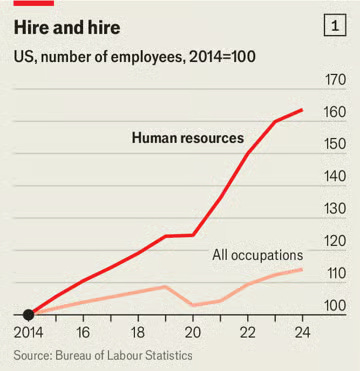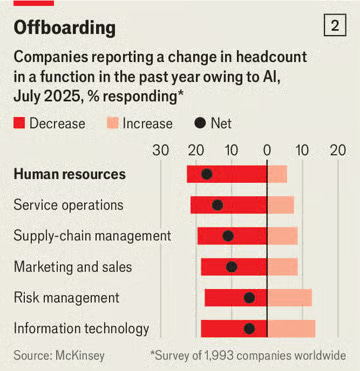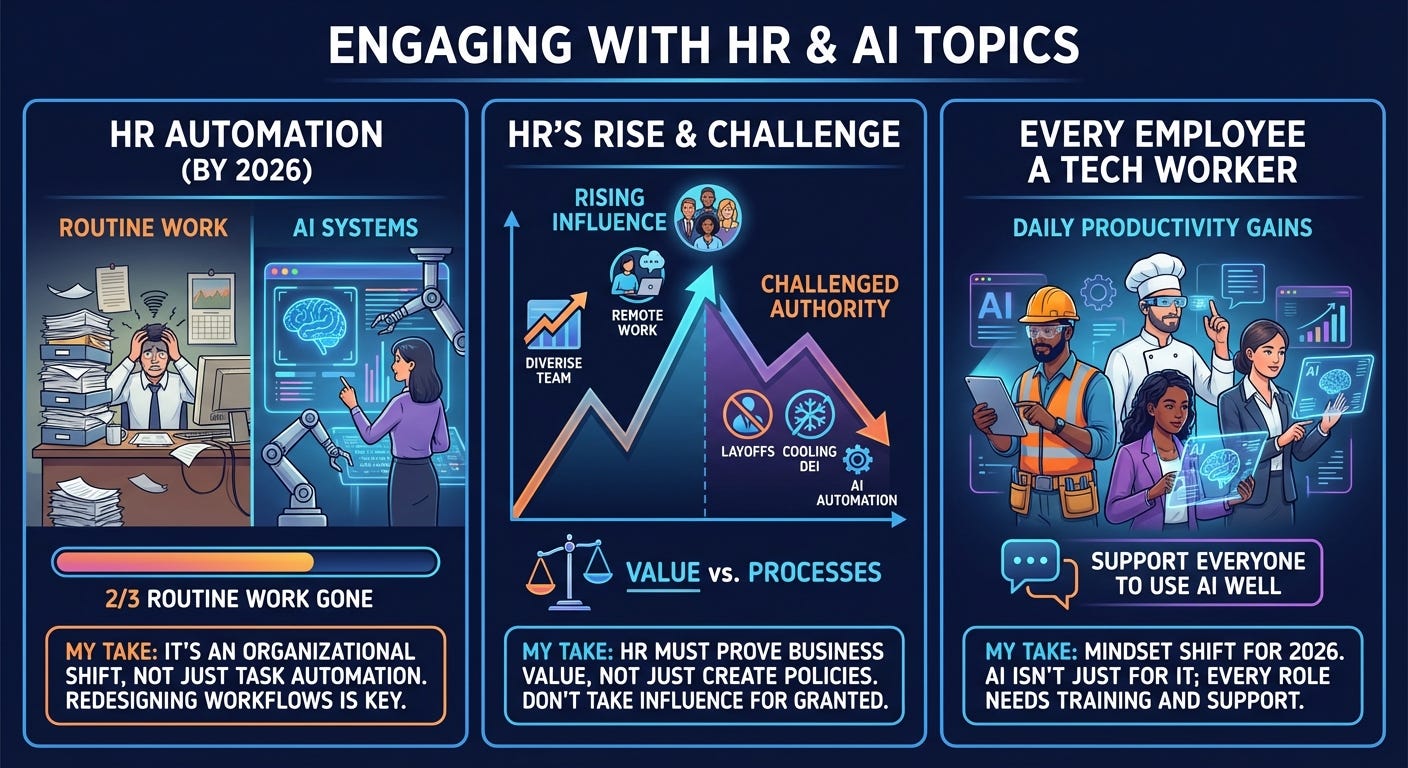Everyone is becoming a tech worker
How AI is changing daily work faster than organisations can adapt.
Welcome to FullStack HR, and an extra welcome to the 32 people who have signed up since last editoon.
If you haven’t yet subscribed, join the 10000+ smart, curious leaders by subscribing here:
Happy Saturday,
Weeks are flying by, and we’re soon already at year's end!
Spent a lot of time this week helping different organisations look at process automation, what could be done? Where do we see how we could be more effective in our ways of working? It will be very interesting to follow these companies going forward!
That said, next year, the first thing I will do in January is an open-course, and there are a couple of tickets left at 50% off! But don’t sleep on that offer!
I’ve condensed working with 200+ organizations with AI adoption into four live sessions over 4 weeks. Only $449 if you grab one of the discounted spots!
That said, let’s get to it.
🧠 Topics I’m engaging with
HR leaders expect AI to take over two thirds of routine work by 2026
This piece shows how fast routine work is shifting into AI systems. Leaders expect most admin tasks in HR, finance, and operations to disappear within a year. When routine work drops out, teams must focus on judgment, coordination and solving real problems. HR needs to redesign roles, workflows and onboarding so people know how to work with AI from day one.
My take:
This is the part many organisations still underestimate. They think AI will automate tasks in the background while the organisation stays the same. It will not. When two thirds of routine work goes away, job descriptions, team structures and handovers break. The companies that move fast on workflow design will gain an edge. Those that wait will end up with confused teams and unclear responsibilities. That said, we should also always carefully consider which processes to automate.
How HR took over the world
Interesting piece from The Economist. They argue that HR’s influence has surged in recent years as organizations grapple with increasingly difficult talent shortages, disruptive workplace changes like remote work, and new regulatory pressures. As a result, the status and authority of HR leaders have grown, putting them closer to the top of corporate decision-making. However, that expansion is now being challenged, recent economic shifts have led to HR layoffs, the initial drive behind DEI efforts has cooled, and artificial intelligence is rapidly automating much of HR’s traditional work. These changes mean HR’s once-rising power may be at risk, leaving its long-term role less certain than before.
My take:
I love my profession, and I’ve always argued that we are one of the most essential functions in every organisation. I feel that, over the last 10 years, this has become increasingly true. We’ve moved from something “nice to have” to “important to have”. But we cannot take that place for granted, and we need to think about the value we provide. That is true, no matter whether AI takes parts of our jobs or not, and I worry that we’ve been less focused on how to move a business forward and more on creating processes and policies that we deem important but that aren't advancing the business.
AI is turning every employee into a tech worker
AI is changing everyday tasks in every role. People who never saw themselves as “tech workers” now use AI to write, plan, analyse and communicate. The big shift is not happening in specialist functions. It is happening in the day to day work of frontline employees, managers and subject matter experts. That is where the real productivity gains show up.
My take:
This is one of the most important mindset shifts for 2026. All of us now have the capability to ideat and create mvp:s for almost all products that we could use within an HR-function. Doesn’t come without problems though, because when every employee becomes a tech worker, training, onboarding and expectations need to change. Leaders must stop thinking “AI belongs to IT” and start asking “How do we support everyone to use AI well?”
🔁 Important updates
Gemini 3 - Google’s new model pushes reasoning, planning and multi step problem solving forward. It handles instructions with more stability and keeps context intact over longer conversations. It also deals better with unclear inputs and can break down tasks without losing track of details. This makes it more reliable for work that needs structure, consistency and clear logic.
Nano Banana Pro launches - Google has been cooking this week! Mid-week they launched an updated version of Nano Banana, their image generation model and it’s mindblowingly good. Especially, it can make text readable. I gave the model the articles above and this is what it gave me.
NotebookLM video generation and new slide formats - Once again, Google is cooking and in NotebookLM can now turn documents into short videos, slide decks and visual summaries. You upload your material and the system builds clear, structured outputs without manual production work. It also supports different visual formats which makes it easier to repurpose the same content for onboarding, leadership training or internal comms.




